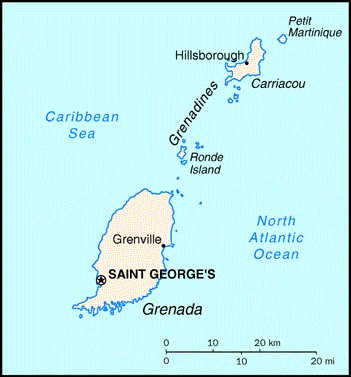

Status Quo Side: Bishop supporters
Non-Status Quo Side: Coard supporters
Region: Western Hemisphere
Conflict Type: External Intervention
Issues in Dispute: Governance Strategic
Disaffected by P.M. Eric Gairy's corruption, urban intellectuals, including Maurice Bishop, formed an opposition party, MAP. By 1972 a new agrarian movement had combined with MAP in the New Jewel Movement (NJM). Strikes were called after Gairy's police beat NJM activists and they became more violent. In 1974, the year of independence, police killed Bishop's father during a demonstration. NJM became more Marxist-Leninist. Bernard Coard formed a radical student group, OREL, which he later used to control NJM and its developing clandestine military wing. Gairy's troops fired on NJM demonstrators, killing one. In the 1976 elections Bishop led the opposition in alliance with moderate social democrats, some of whom left as Coard's strength increased. Coard favored Leninist-type party rule. The 1979 oil shock and brutal Mongoose Gang police further destabilized Gairy's government. While Gairy was at the UN, Bishop and 46 NJM militants staged a nearly bloodless coup and installed a "radical leftist" regime. The public rejoiced. The US discouraged international funding and Grenada sought aid from the USSR, Libya, Cuba and Venezuela.
The Bishop-Coard split worsened. During a 1983 US visit, Bishop cooled his rhetoric, but the US threatened to end aid if the Cuban link remained. On October 13, Coard's faction arrested Bishop.
A popular demonstration freed Bishop. The Revolutionary Military Council fired on the crowd, killing Bishop and several ministers. Cuba's Castro denounced the murders; the USSR praised the RMC. By October 21 the US, Barbados, Jamaica, and Organization of Eastern Caribbean States (OECS) had plans to intervene. Grenada's Governor General requested help. On October 25 US troops invaded, ostensibly to protect US students. The troops were opposed by some local forces and Cubans (mainly construction workers). At an urgent UNSC meeting, OECS states termed the NJM a threat to peace. The US vetoed a resolution condemning its action as a violation of international law.
All resistance ended after 87 Grenadian, Cuban and US casualties. The UNGA approved a Nicaraguan resolution condemning the US with nine opposed. Herbert Blaize was elected Prime Minister. A US military force remained until June 1985.